- Take action: demand polluters must pay
- Meet the climate activists
- Gaza-Israel Conflict: Call for a lasting ceasefire now
- Send your MP voice messages from Gaza
- Gaza/Israel: 'Ceasefire now' downloadable posters
- Add your name to fight back against the inequality crisis we’re in.
- Act for climate justice
- Join The Oxfam Student Activist Network!
- Lobby your MP
- Online course: making change happen
- Read: Making Things Fair
- Time to Care
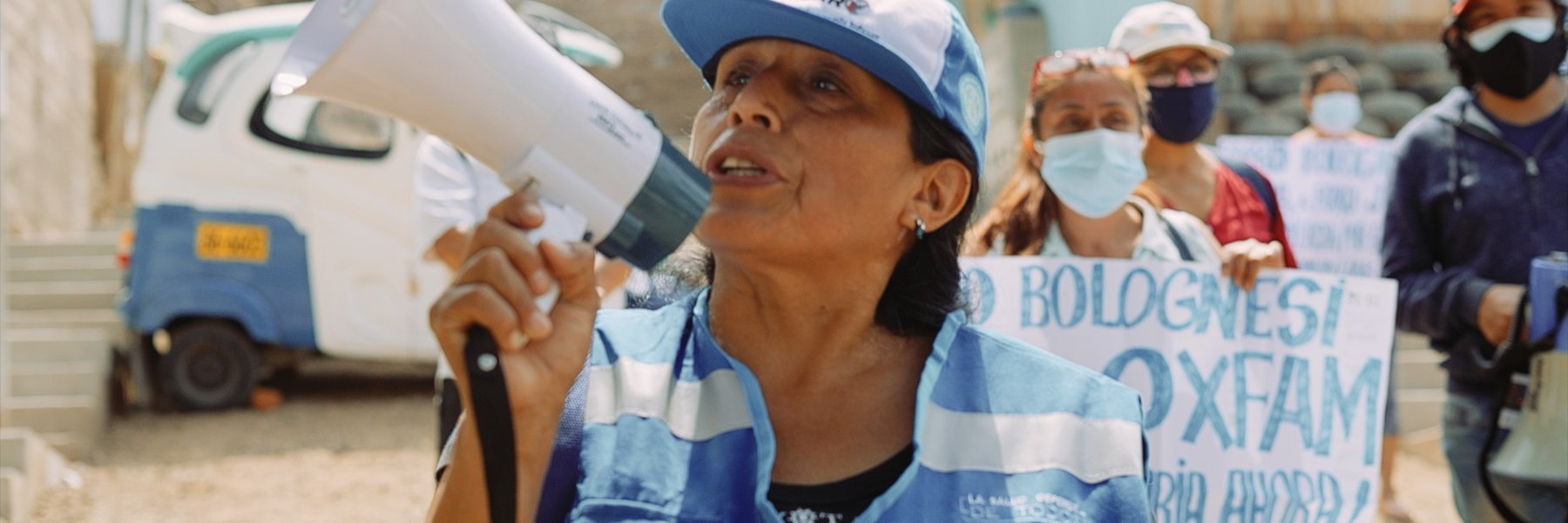
Janet Fuentes, health activist, Peru. Image: Miguel Villalobos
It's an insult when money is more important than people's lives.”
Janet Fuentes, health activist, Peru.
Fight Inequality
Poverty has increased for the first time in 25 years
But this is more than a cost of living crisis, it’s an inequality crisis. A symptom of an unequal economic system. One that prioritises profits and sees billionaires and big business profiting more than ever. While most people, especially those living in poverty, pay the price.
"We are facing incredibly huge challenges. As for the raw materials, the price of chilies has now more than doubled, even tripled. Hard work is not enough in this tough world," Nawja in Tunisia. Image: Achref Ben Abdallah/Oxfam
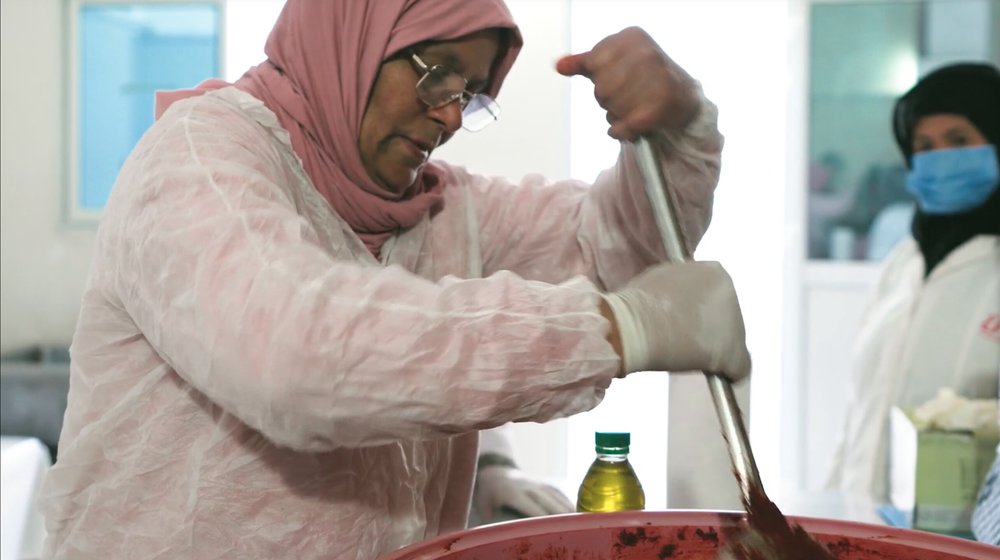
We are facing incredibly huge challenges. As for the raw materials, the price of chillies has now more than doubled, even tripled. Hard work is not enough in this tough world.”
Najwa, whose harissa business in Tunisia may not survive inflation.
What is inequality?
Inequality is the unequal and unfair distribution of resources, opportunities, and power that shape the quality of all of our lives.
There are many different forms of inequality (economic, gender, race, class, health, sexuality, and more) which, when put together, result in people experiencing greater levels of inequality.
When we highlight the impact of billionaires' wealth, we are highlighting an unfair economic system which causes inequality and affects our ability to survive as well as thrive.
Photo: Oxfam
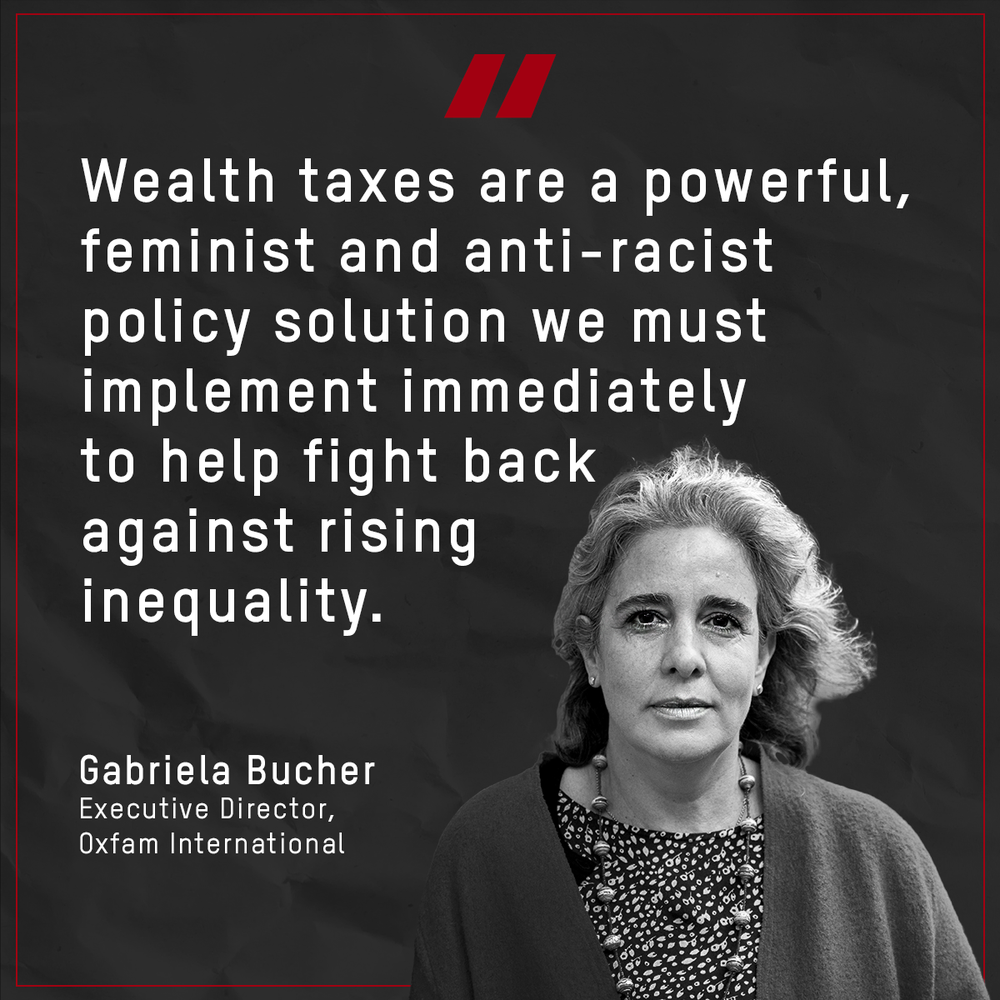
Why does Oxfam work to tackle inequality?
Oxfam works to tackle inequality because inequality makes poverty worse. Inequality undermines the fight against poverty in the UK and around the world.
We’ve been seeing this for decades through our work in communities and in our research. What we are living through today is more than a cost of living crisis, it’s an inequality crisis and it’s deepening poverty the world-over.
We are living through an unprecedented era of crises and now the #CostOfLiving crisis BUT the rich get richer and corporate profits hit record highs. 💸
— Oxfam (@oxfamgb) January 19, 2023
It doesn't have to be this way.
Let’s end the era of #SurvivalOfTheRichest. It’s time to #TaxTheRich to #FightInequality. pic.twitter.com/I5l1MlTBHb
Inequality is not inevitable
Governments can make choices that prevent inequality. They can make choices that mean people can live safe from hardship. Instead, governments worldwide are making choices designed to protect the power and wealth of a privileged few, while removing the power of everyday people.
By failing to listen, failing to provide opportunities, and failing to invest in vital support systems (like child and adult care services, social protection and benefits, and international aid, etc.) they are rigging the system in favour of the rich.
These choices are taking away people’s right to survive, let alone opportunities to thrive. Let’s reclaim our collective power and hold decision makers to account. Let's push governments to make better choices. So that those who profit the most, who can afford it the most, foot the bill for a fairer and more equal world. One that benefits everyone.
"There's only one way for the rich to stay rich, and that's for you and me and everyone to stay poor." Rosa in Madrid, who can't afford to put on the heating right now.. Image: Oxfam
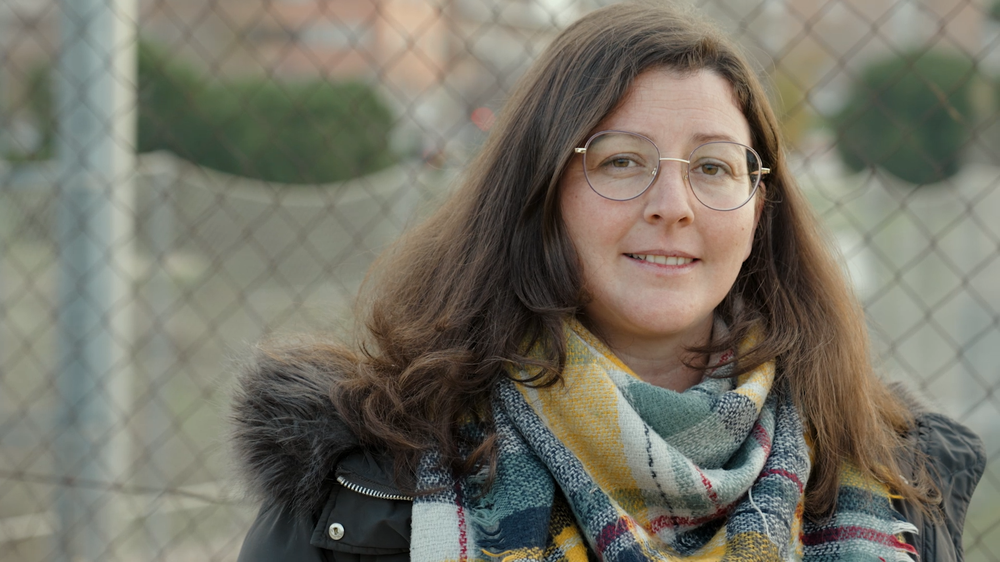
The only thing I want to do is fight so that it doesn't stay like this.”
Rosa in Spain, who can't afford to put on the heating right now.
- Since 2020, the richest 1% have captured almost two-thirds of all new wealth, nearly twice as much money as the bottom 99% of the world’s population.
- Billionaire fortunes are increasing by $2.7bn a day, even as inflation outpaces the wages of at least 1.7 billion workers, more than the population of India.
- Food and energy companies more than doubled their profits in 2022, paying out $257bn to wealthy shareholders, while over 800 million people went to bed hungry.
- A tax of up to 5% on the world’s multi-millionaires and billionaires could raise $1.7 trillion a year, enough to lift 2 billion people out of poverty, and fund a global plan to end hunger.
Inequality facts
The richest 1% grab nearly twice as much new wealth as the rest of the world put together. Image: Oxfam
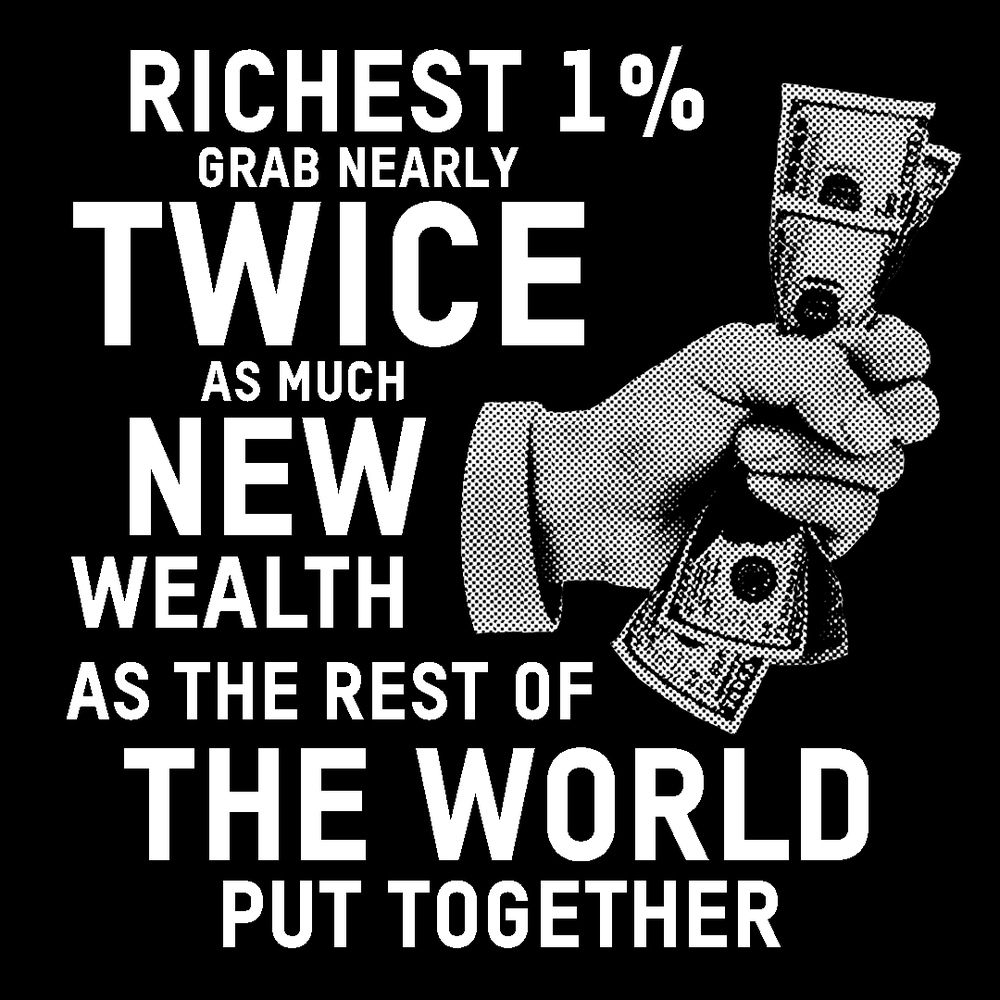
How do we tackle inequalities?
There’s lots that can be done to tackle inequality. It starts with people in power making fair political and economic choices for the majority, not the minority. Taxing the super-rich more is a first step to fighting inequality.
Greater taxation is not the only answer to the inequality crisis, but it is a fundamental part of it. It's time for governments to shake off decades of failed ideology, and rich elite influence. It's time for them to do the right thing: tax the rich more.
The revenues raised from a new wave of progressive taxes could then be used to build a fairer, more equal and sustainable future for us all.
Oxfam is calling for every country to implement a mix of taxes that would ensure the richest 1% pay significantly higher tax rates. For example, an annual wealth tax of up to 5% on the world’s multi-millionaires and billionaires could raise $1.7 trillion a year.
What can you do to help tackle inequality?
- Read the Survival of the Richest report.
- Download our fighting inequality campaigner toolkit and poster and start campaigning!
- Listen to the Equals podcast and check out the Equals blog.
- Follow @OxfamCampaigns on Twitter/ Facebook and Instagram and follow #FightInequality.
- Watch this video of an inequality hearing we held in the UK.